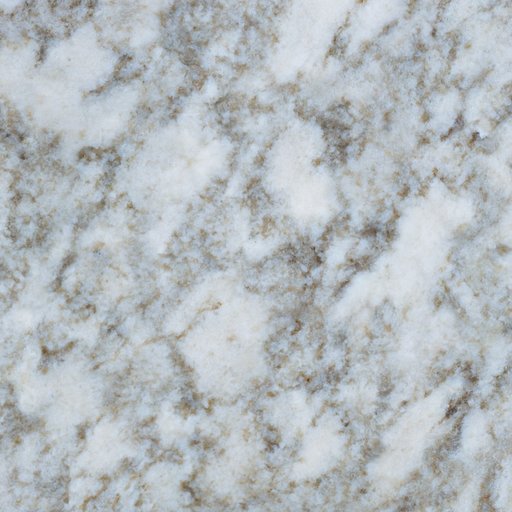Introduction
Choosing the right countertops for your home is no easy feat. With so many materials on the market, it can be difficult to determine which one is best suited for your needs and lifestyle. Two of the most popular options, granite and quartz, both come with their unique strengths and weaknesses. In this article, we will take a closer look at each material’s key characteristics and compare them in several categories to help you make an informed decision.
Pros and Cons
Before we can dive deeper into the specific features of granite and quartz, it’s essential to understand what each material is. Granite is an igneous rock that forms under the Earth’s surface and consists mainly of quartz, feldspar, and mica. On the other hand, quartz countertops are made from engineered stone, which is a combination of natural quartz crystals, resins, and pigments.
One of the main advantages of granite is its durability. It is scratch-resistant, heat-resistant, and can withstand heavy use without showing signs of wear and tear. However, granite countertops require regular sealing to prevent staining and bacteria growth. Quartz, on the other hand, does not require sealing and is non-porous, making it highly resistant to staining and bacteria growth. However, it is not as heat-resistant as granite and can be vulnerable to damage from high temperatures.
When it comes to aesthetics, granite is prized for its natural beauty and unique patterns, which are formed by the Earth’s natural processes. Quartz, on the other hand, can be manufactured in a range of colors and styles, making it a more versatile option for those seeking a specific look or design.
Design and Appearance
The design and appearance of your countertops can play a significant role in the overall look and feel of your home. Granite is known for its distinct and natural patterns, making each slab unique. While granite is available in a range of colors and styles, it is a more limited range than that of quartz countertops. Quartz is highly customizable, with an array of designs and colors that can mimic the look of natural stone or provide a completely unique style. Additionally, quartz countertops have a more uniform appearance than granite, making it a popular choice for a sleek, modern aesthetic.
Durability and Maintenance
When it comes to durability, both granite and quartz are solid choices for countertops. Granite is heat-resistant, scratch-resistant, and highly durable. With proper maintenance, a granite countertop can last for decades without showing signs of wear and tear. However, granite countertops require regular sealing to prevent staining, and they are also porous, making them vulnerable to bacteria growth.
Quartz, on the other hand, is non-porous, making it highly resistant to bacteria growth and staining. It is also scratch-resistant and can withstand heavy use without showing signs of wear and tear. However, quartz is not as heat-resistant as granite, and it is vulnerable to damage from high temperatures. Additionally, quartz countertops cannot be repaired if damaged, while granite can be repaired with a specialized resin.
Pricing and Affordability
Pricing is an essential factor to consider when choosing countertops, as some materials can be more expensive than others. Granite and quartz fall under the same price range, with the starting point of granite being less expensive than quartz. Granite prices can range from $35 to $75 per square foot, while quartz can range from $50 to $120 per square foot. However, additional costs such as installation, plumbing or electrical work, and maintenance should also be factored in when determining the overall cost-effectiveness of each material.
When it comes to cost-effectiveness over time, both granite and quartz offer value in their longevity and durability, potentially making them more cost-effective in the long run than other countertop materials that require regular repairs or replacements.
Environmental Impact
The environmental impact of each material is another essential factor to consider when choosing countertops. Granite countertops, although naturally occurring, require energy-intensive methods to mine and transport the material. Additionally, granite is often shipped from overseas, increasing its carbon footprint.
Quartz countertops have a lower carbon footprint than granite, as the manufacturing process uses recycled glass and marble scraps, saving energy and reducing waste.
Health and Safety
Due to the potential health hazards associated with natural stone, it’s essential to consider the impact of granite and quartz countertops on your indoor air quality and health. Granite has been found to emit high levels of radon, a radioactive gas that can cause lung cancer. While the risk of radon exposure from granite countertops is relatively low, it’s still essential to take precautions to mitigate any potential health risks.
Quartz, on the other hand, does not emit radon, making it a safer option for those concerned about their indoor air quality.
Value and Resale
When considering the value and resale of your home, it’s essential to choose countertops that will add value to your property. Both granite and quartz countertops are considered high-end options that can increase the value of your home. According to the National Association of Realtors, upgrading to granite countertops can increase the value of your home by up to 6%. Quartz countertops have a similar effect, with reports indicating they can increase a home’s value by up to 4%.
Conclusion
In conclusion, both granite and quartz offer unique advantages and disadvantages as countertop materials. When making a decision, it’s important to consider factors such as your personal style, maintenance requirements, and budget. Ultimately, the choice between granite and quartz comes down to personal preference and individual needs. By weighing the pros and cons of each material, you can make an informed decision that meets your specific requirements.
